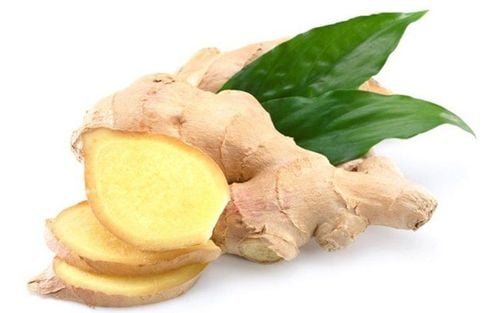Ginger is a food rich in nutrients and important plant compounds that have been proven to help reduce symptoms of nausea and vomiting. As a result, many pregnant women use ginger as a remedy to alleviate the discomfort caused by morning sickness. However, whether consuming ginger is truly safe during pregnancy remains a highly debated question.
1. Health Benefits of Ginger
Ginger is a tropical flowering plant commonly grown in India, China, the Caribbean, Africa, and other warm climates. The root of the ginger plant is well-known as a unique spice and flavoring agent. Additionally, it has been considered a traditional remedy for treating various ailments across many cultures for thousands of years.
In folk medicine, ginger has been used to treat abdominal pain and nausea. Moreover, it supports digestion and stimulates saliva production. Some studies suggest that consuming ginger may help reduce nausea and vomiting in pregnant women. However, pregnant women should exercise caution when using ginger as it may increase the risk of miscarriage, especially when consumed in high doses.
In addition, ginger is also effective in reducing nausea caused by dizziness, motion sickness, surgery, or chemotherapy. It has been found to alleviate menstrual cramps in women during their periods. A recent study showed that more than 60% of women experienced less abdominal pain during their menstrual cycle after using ginger.
There is also evidence suggesting that ginger can help relieve joint pain, muscle aches, headaches, and rheumatoid arthritis. Laboratory and animal studies have found that, in theory, ginger may provide the following benefits:
- Lower cholesterol
- Reduce blood sugar levels
- Decrease inflammation
- Prevent Alzheimer’s disease
- Prevent blood clots
Clinical experiments indicate that ginger may help lower blood sugar levels and blood pressure. Some people even apply ginger topically to injured skin to alleviate pain.

2. Can Ginger Be Consumed During Pregnancy?
With the aforementioned health benefits, during pregnancy, you can eat ginger or drink ginger tea to reduce symptoms of nausea and vomiting caused by morning sickness.
Statistics show that approximately 80% of women experience signs of morning sickness during the first trimester of pregnancy, including nausea and vomiting. Fortunately, ginger contains various plant compounds that may help pregnant women alleviate some of these uncomfortable symptoms. Specifically, ginger contains two types of plant compounds, gingerols and shogaols, which act on receptors in the digestive system and promote faster stomach emptying, thereby reducing nausea. Fresh ginger generally contains more gingerols, while dried ginger is richer in shogaols.
Additionally, pregnant women can drink ginger tea made from fresh or dried ginger. These teas may also contain compounds with anti-nausea properties suitable for treating morning sickness during pregnancy.
Furthermore, ginger has been recognized for its ability to reduce uterine cramp pain that many pregnant women experience during the first trimester. However, no specific studies have analyzed the effects of ginger on pregnancy-related cramping.

3. Potential Risks of Using Ginger
When ginger is consumed in small amounts, it rarely causes side effects. However, consuming ginger in amounts higher than 5 grams per day can increase the risk of side effects such as rashes, heartburn, gas, mouth irritation, and stomach discomfort. In some cases, eating ginger may increase the risk of bleeding, especially in individuals with bleeding disorders. Therefore, to ensure safety, it is recommended to consult with a doctor about the herbal medicines being used, including ginger.
The use of ginger (including eating and drinking ginger tea) is considered safe for pregnant women when consumed in reasonable amounts. Experts suggest that consuming up to 1 gram (1,000 mg) of ginger per day is safe for pregnant women, helping to reduce nausea during pregnancy. This is equivalent to 4 cups (950 ml) of packaged ginger tea or homemade ginger tea made from 1 teaspoon (5 grams) of grated ginger soaked in water.
Studies have not found any association between consuming ginger during pregnancy and the risk of preterm birth, low birth weight, stillbirth, or other complications. However, some evidence suggests that ginger tea or ginger should not be consumed close to labor, as ginger may increase the risk of bleeding. Additionally, pregnant women with a history of miscarriage, vaginal bleeding, or blood clotting issues should avoid ginger products.
Moreover, if you are taking any medications, you should consult with a doctor before starting ginger supplements. Ginger may interact with certain blood-thinning medications, medications for high blood pressure, and diabetes medications.
In summary, pregnant women can safely consume ginger, but only in moderate amounts. Additionally, to ensure safety, expectant mothers should regularly attend prenatal check-ups and follow the nutritional guidelines provided by their healthcare provider.
To arrange an appointment, please call HOTLINE or make your reservation directly HERE. You may also download the MyVinmec app to schedule appointments faster and manage your reservations more conveniently.
References: webmd.com, healthline.com













